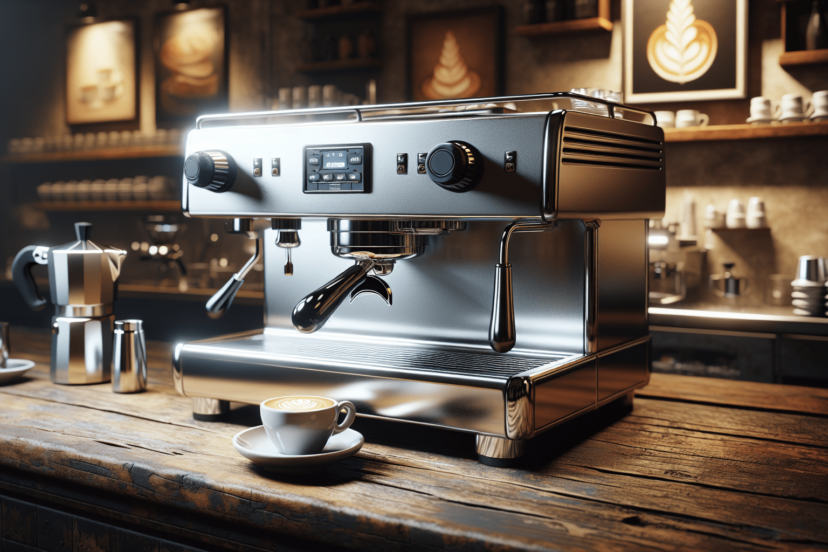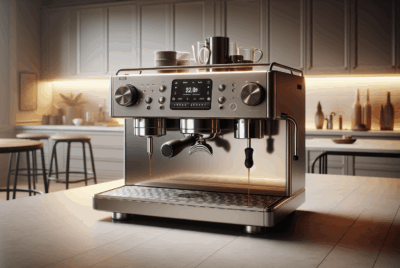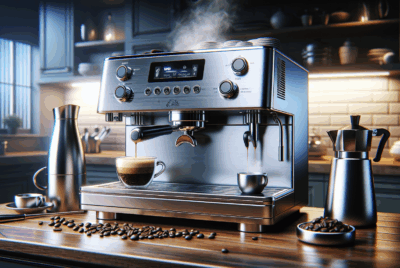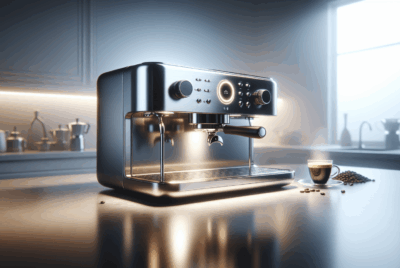Choosing the Best Espresso Machine for Your Coffee Shop
As an Amazon Associate, I earn from qualifying purchases, at no additional cost to you. Disclaimer
Have you ever wondered what factors go into choosing the best espresso machine for your coffee shop? It’s not just about picking a beautifully sleek device that fits your counter space. The right espresso machine is essential to crafting that perfect cup your customers crave, contributing significantly to the overall success of your business.
Click Here to Brew Better Coffee Today
Understanding the Importance of an Espresso Machine
Investing in a high-quality espresso machine is vital for any coffee shop owner. The machine represents not only an essential part of your daily operations but also a symbol of your dedication to delivering premium beverages. Your choice influences the efficiency of your staff, the speed of service, and most importantly, the taste of your coffee.
Why Espresso Machines Matter
Espresso machines are the heart of a coffee shop. They transform simple coffee beans into an indulgent experience. When your machine works well, your baristas can focus on crafting delicious drinks, creating a welcoming atmosphere, and engaging with customers. Selecting the right machine ensures you meet customers’ expectations every time.
What to Consider Before Buying
To make an informed decision, you need to consider a few critical factors, including your budget, the size of your shop, the volume of coffee you expect to produce daily, and the technical expertise of your staff. Balancing these aspects will guide you toward a machine that fits your operational needs and business goals.
Types of Espresso Machines
When evaluating espresso machines, understanding the different types available is essential. Each type has its own unique characteristics and advantages that could make it the right choice for your shop.
Manual Espresso Machines
Manual espresso machines, also known as lever machines, offer complete control over the brewing process. They require the user to pull a lever to apply pressure to the coffee. This option is perfect if you’re aiming for a hands-on approach and want to focus on the art of espresso making. However, it requires skilled baristas and can be time-consuming during busy times.
Semi-Automatic Espresso Machines
These machines allow you to control some aspects of the coffee-making process, such as the grind size and tamping pressure. They automate the water pressure part but leave the extraction length up to you. Semi-automatic machines are a popular choice because they provide a balance between control and ease of use, ideal for shops with baristas who have moderate training.
Automatic Espresso Machines
With automatic machines, you simply push a button, and they handle the rest. They reduce the chance of human error and allow for greater consistency, which is useful in high-volume environments. These machines require less training, making them efficient for new staff.
Super-Automatic Espresso Machines
Super-automatic machines are the epitome of convenience. They automate the entire process from grinding to tamping and brewing, making them perfect for busy coffee shops. While they offer ease and speed, they do limit customization and control.
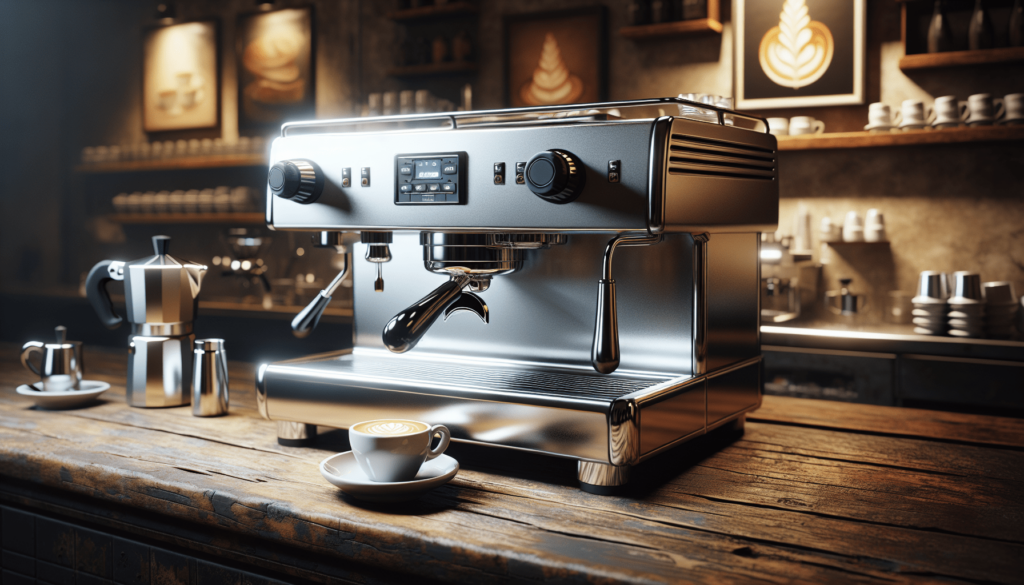
Click Here Explore the Best Espresso Machines
Key Features to Look for in an Espresso Machine
Selecting an espresso machine involves looking into various features to ensure it meets your coffee shop’s demands. Here’s what to pay attention to:
Boiler Type and Size
Espresso machines can have single or dual boilers. Single boilers are more affordable but may limit you if you need to steam milk and brew coffee simultaneously. Dual boilers allow for this, making them ideal for busy environments. Consider your shop’s capacity and choose a boiler that can consistently handle your predicted volume.
Durability and Build Quality
A robust machine is crucial to withstand the daily hustle and bustle of your shop. Look for machines made of high-quality materials like stainless steel. They tend to last longer and endure extensive use. A durable machine helps reduce maintenance costs and ensures operational efficiency.
Ease of Maintenance
Espresso machines require regular cleaning and maintenance to function optimally. Choose a machine that allows easy access to its components for cleaning and repair. Some machines have self-cleaning functions, which can save time and hassle.
Temperature Controls and Stability
Temperature plays a vital role in the taste of espresso. Machines with stable temperature control provide consistent, high-quality espresso shots. Some machines feature Programmable Temperature Control (PTC) systems for precise management of brewing temperatures.
Pressure and Pump Type
Look for a machine with a reliable pump system, typically a rotary pump or a vibration pump. Rotary pumps offer consistent pressure and are quieter, whereas vibration pumps are more affordable but may have slightly inconsistent pressure.
Making the Cost Work for You
Investing in an espresso machine can be a major financial decision. It’s important to see beyond the initial purchase price and factor in long-term costs related to maintenance and repairs.
Initial Costs and Budgeting
Set a realistic budget based on your cash flow and business plan. It’s easy to be dazzled by top-tier models, but they should align with your needs and financial capabilities. Sometimes, a well-selected mid-range machine can be more cost-effective than high-end options.
Operating Costs
Consider factors such as energy consumption, water usage, and maintenance costs. Machines with energy-saving features might cost more upfront but save money in the long run. Efficient machines reduce waste and operational costs, improving your bottom line.
Financing and Leasing Options
If purchasing outright strains your finances, explore leasing or financing options. Leasing can provide flexibility and allow you to upgrade technology as your shop grows, while financing spreads the cost over time, helping to manage cash flow better.
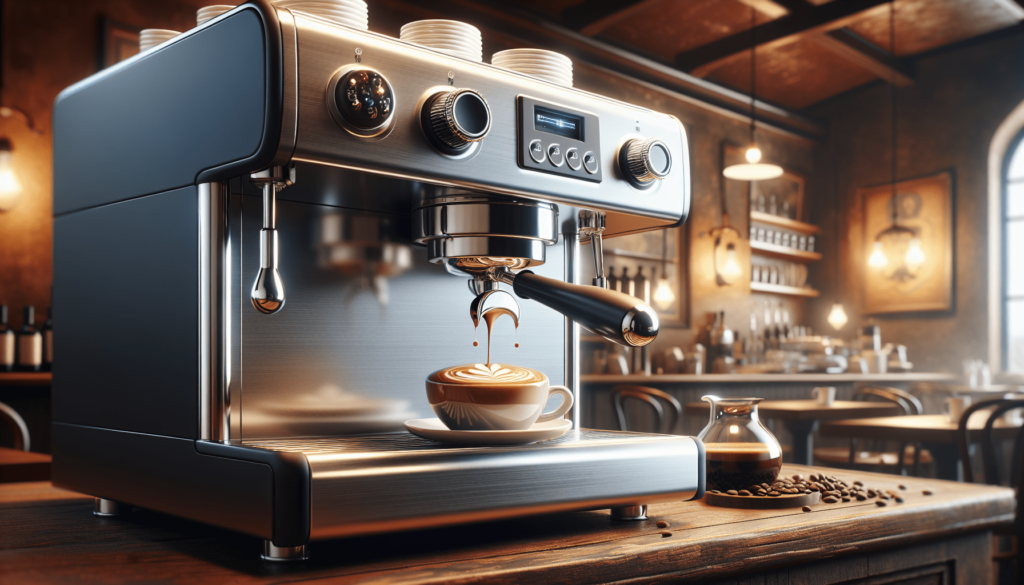
Click Here to Master Coffee at Home
Training and Skill Level of Staff
The complex nature of espresso machines requires trained staff to operate them efficiently. The machine’s type should reflect your staff’s skills.
Skill Requirements for Different Machine Types
Manual and semi-automatic machines demand more skill and experience from baristas. In contrast, automatic and super-automatic machines require minimal training, allowing new staff to produce consistent quality without extensive expertise.
Investing in Barista Training
Providing adequate training ensures your staff can produce high-quality drinks efficiently and consistently. This investment pays off with improved service quality and higher customer satisfaction. Consider offering ongoing training and certifications to keep skills sharp.
Brand Reputation and Support
Choosing a reputable brand ensures you have access to quality customer support and parts. Research brands thoroughly before making a decision.
Researching Brands
Look for brands with positive reviews and strong reputations in the coffee industry. Brands with a history of innovation and reliability are more likely to offer machines that last and perform well.
Customer Support and Warranty
A robust customer support system is invaluable. Machines can break down unexpectedly, and a warranty provides peace of mind during these occurrences. Check what kind of warranty and after-sales service the manufacturer offers.
Customization and Future Proofing
Your business will grow and evolve, so it’s smart to choose a machine that can adapt along with your shop.
Customization Options
Look for machines that allow customization of drinks, such as programmable settings for different espresso strengths or milk textures. This feature caters to customer preferences and keeps your menu fresh and exciting.
Scalability and Upgrades
Consider how your machine integrates with emerging technologies and trends. Some machines offer software updates or add-ons, making them adaptable to new business requirements without the need for a complete replacement.
Conclusion
Selecting the right espresso machine for your coffee shop is a comprehensive process that requires careful consideration of various factors – from your budget and staff capabilities to customer expectations and long-term plans. By making an informed decision, you equip your business with a tool that enhances productivity and delivers exceptional customer experiences.
Explore the available options based on your specific needs, and remember, the best espresso machine is the one that brings a smile to every barista and delight to every customer, cup after cup.

